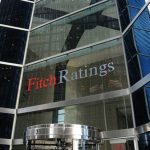Businesses across Ghana are buckling under the weight of unprecedented interest rates, with the central bank’s policy rate holding steady at 27% as inflation concerns persist.
The prohibitive cost of borrowing has forced many small and medium enterprises (SMEs) to either shelve expansion plans or resort to expensive informal lending channels, threatening the nation’s economic recovery prospects.
The ripple effects of these high rates have cascaded through the economy, with commercial banks charging upwards of 35% on loans, effectively strangling business growth and investment.
Industry leaders warn that the sustained high-interest environment is creating a new class of distressed businesses, particularly in the manufacturing and agriculture sectors, where profit margins are traditionally thin.
In an interview, the Managing Director of Stanbic Bank Ghana, Kwamina Asomaning, highlighted the country’s troublingly high interest rates as a significant impediment to economic growth, pointing to the current policy rate of 27% as evidence of the country’s outlier status among African markets.
This benchmark rate, which serves as the foundation for all lending activities, has created a ripple effect throughout the economy, impacting everything from business operations to consumer purchasing power.
The banking executive’s analysis reveals a complex web of challenges facing Ghana’s financial sector, with inflation emerging as the primary culprit behind the elevated policy rates.
Inflation/NPLs
Despite its critical importance, the CEO suggests that inflation has not received adequate attention in national political discourse, unlike in developed economies such as the UK and US, where it ranks alongside unemployment and immigration as a top policy concern.
The erosion of purchasing power stands as a stark reminder of inflation’s impact on ordinary Ghanaians.
Through a simple yet powerful illustration, the CEO demonstrated how inflation systematically diminishes the value of money, using the example of how a fixed amount of cedis buys fewer crates of eggs over time, effectively “stealing money from people’s pockets.”
Adding to the sector’s challenges is the alarming rate of non-performing loans (NPLs), currently hovering between 24-35% — significantly higher than the World Bank’s recommended threshold of 10% for economies of Ghana’s size.
This means banks recover only 75 cedis for every 100 cedis lent, forcing institutions to factor these losses into their pricing models and contributing to higher lending rates.
The difficulties in collateral realisation further compound the banking sector’s challenges.
The CEO pointed to an unfriendly court system where basic commercial disputes can drag on for years, making it both uneconomical and challenging for banks to extend credit.
This judicial bottleneck has effectively hampered the banking sector’s ability to perform its fundamental role in the economy.
The relationship between high interest rates and NPLs appears to be more than mere correlation, as during periods of economic stress, this connection has led banks to reassess their credit risk appetite, often resulting in reduced lending to vulnerable sectors of the economy.
Solutions from finance minister
Looking toward solutions, the CEO welcomed the finance minister’s recent target of reducing inflation to 8%, while emphasising the government’s crucial role in achieving this goal.
Government spending, particularly when it exceeds revenue, was identified as a major inflation driver, reflecting the classic economic principle of “too much money chasing too few goods.”
The banking executive took a firm stance against the argument that Ghana needs aggressive borrowing to fund investments in key economic sectors.
Drawing comparisons with regional neighbours in the West African Monetary Union, he noted that while those countries might not match Ghana’s growth rates, they enjoyed greater economic stability thanks to more conservative fiscal policies.
This conservative approach, the CEO argued, is not merely about restraint but about sustainability.
Using the analogy of cutting one’s coat according to one’s cloth, he emphasised that Ghana’s aggressive spending patterns, while potentially well-intentioned, have led to inevitable financial distress.
The current economic situation serves as a stark reminder that while nations can choose their policies, they cannot choose the consequences of those policies.
Through the CEO’s assessment emerges a clear call for fiscal discipline and a more measured approach to economic development. The focus should shift from aggressive expansion to sustainable growth, with particular attention paid to maintaining inflation rates that support, rather than hinder, economic progress.
The current economic challenges have exposed the vulnerabilities in Ghana’s financial system, from high interest rates to problematic NPLs.
However, they also present an opportunity for reform and recalibration of economic priorities.
Mr Asomaning’s insights suggest that the path forward requires not just technical solutions but a fundamental shift in how Ghana approaches its economic management.
The banking sector’s ability to support economic growth remains constrained by these high interest rates and associated challenges.
As the CEO points out, credit serves as a crucial lever for economic advancement, allowing businesses to expand beyond their immediate capabilities. However, this mechanism can only function effectively when interest rates are at sustainable levels.
Transformative solutions for Ghana’s economy
Ghana’s economy is at a crossroads, and transformative policies are needed to diversify its economy beyond its two main foreign exchange earners: cocoa and gold. Mr Asomaning emphasised the need for innovative solutions to propel the country’s economic growth.
Diversification through tourism and agriculture
The CEO suggested that tourism, along with a focus on additional crops such as ginger, mangoes and cashew, could be a game-changer for the economy.
He cited the “Year of Return” initiative as a successful example of a well-structured project that could attract foreign exchange. Kenya’s tourism industry was also mentioned as a model worth emulating.
Creating Institutions to support export-led economy
Mr Asomaning questioned why Ghana hasn’t replicated the institutional framework that supports the cocoa industry for other commodities.
He proposed creating similar boards for products such as cashew, mango and ginger to focus attention and resources on making Ghana an export-led economy.
This move could expand the economy and generate much-needed foreign exchange.
Agriculture and Agri-Business: Low-hanging fruits
A transformation focus on agriculture and agri-business can provide the raw materials needed for industrial expansion.
The CEO described this approach as “low-hanging fruits” with the potential to transform the economy. By leveraging these opportunities, Ghana can reduce its dependence on cocoa and gold, creating a more diversified and resilient economy.
As Ghana navigates its economic challenges, it’s clear that innovative solutions and strategic investments in tourism, agriculture and agri-business can help drive growth and prosperity.
















